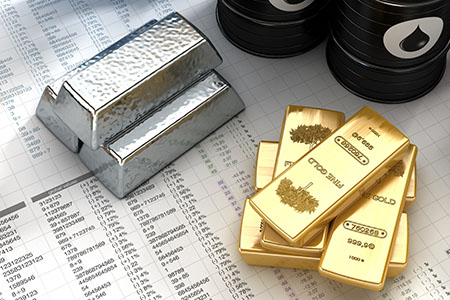There has been a notable rise in interest in investing in commodities since the start of the 2020 pandemic, particularly amongst younger investors. Gold and silver are two that have been especially alluring, seen by some as a ‘hedge’ in their portfolio against the volatility seen by equities in recent months. Yet are commodities such as these, viable investments? How should they be integrated within a portfolio, if at all? Here at Vesta Wealth, we wanted to offer this summary of the key considerations to assist our clients here in Cumbria, Teesside and across the North of England.
We hope you find this content useful and we would be delighted to help answer any questions you may have about how this could affect your financial plan, via:
t: 01228 210 137
e: [email protected]
Gold & silver: an overview since 2011
One interesting trend to note is the price of these commodities over recent decades. Here is a useful graphical summary since 2006:

Source: Goldprice.org
You can see that both metals tend to follow each other fairly closely with regards to their value over time. What is particularly interesting, however, is the period spanning 2011-2020. In this timeframe, silver has lost value. This can be partly explained by events in 2011, where there was a peak in the gold and silver prices. Around this time, many investors believed that the US Federal Reserve was going to cause significant inflation due to money printing. However, this never transpired, leading to a gradual fall in the price of silver and gold. The latter, nonetheless, has made a large comeback in 2020.
The impact of Covid-19 on gold
Covid-19 and the subsequent lockdown on the UK economy and equity markets, has had a huge impact on investments. Between 24th and 28th February, markets across the globe reported their largest weekly fall since the 2008 Financial Crisis. By March, global stocks witnessed a 25-30% fall. Many people’s pension savings suffered as a result.
Given this volatility and financial damage, it is understandable that many people have turned to other asset classes to try and recoup their losses and mitigate further downward performance. In March and April alone, for instance, the Royal Mint reported that demand for gold coins/bars had gone up at an ‘unprecedented’ rate, with 6,000 new customers, at least 25% of whom were under 35. The reasoning seems clear as gold has increased in value by around 25% since March 2020. Yet is gold the ‘silver bullet’ (excuse the metaphor!) which some people think it is?
Pros and cons of precious metals
Silver is set apart from gold due to its numerous industrial uses (e.g. electronics, bandages and solar panels). Both are popular, however, as jewellery. Yet what are some of the pros and cons to consider with your Financial Planner before including either of them in your portfolio?
Pros
- Market hedge. As mentioned above, commodities such as gold and silver can provide a way to stay invested whilst minimising the impact of equity volatility upon your portfolio.
- Value against currencies. Local currencies constantly go up and down in value. Gold and silver can fluctuate too, yet you are arguably more likely to hold onto their value since there is only a finite amount of both in the world. Currencies, however, could theoretically ‘run away’ with severe inflation.
Cons
- Low returns. This might sound counterintuitive given the good run that gold has had so far in 2020. Yet, historically speaking, gold has performed very weakly compared to equities. Imagine you went back 100 years and you had the option of putting £10,000 towards either gold, bonds or stocks. The latter would beat the first by a considerable amount. Your gold might be worth only £26,000, but the stocks could be over £5.5m!
- Only valuable if sold. Bonds can generate an investment return through the coupons which can even provide you with a regular source of income. Dividends from company investments can also do the same. Yet commodities such as gold and silver can only generate money when they are sold for a higher price compared to when they were bought (i.e. capital gains). Owning them does little for you except perhaps earn you some personal satisfaction or prestige in the eyes of others.
Invitation
Investing in commodities can be a suitable element of an overall portfolio for certain investors, depending on factors such as your risk appetite, interests, investment horizon and financial goals. Your Financial Planner can help assess these matters so that you can make informed choices which are in your best interests.
If you would like to discuss your financial plan and investment strategy, then we would love to hear from you. Get in touch with your Financial Planner here at Vesta Wealth in Cumbria, Teesside and across the North of England.
Reach us via:
t: 01228 210 137
e: [email protected]

